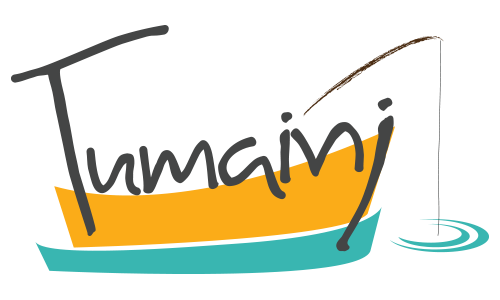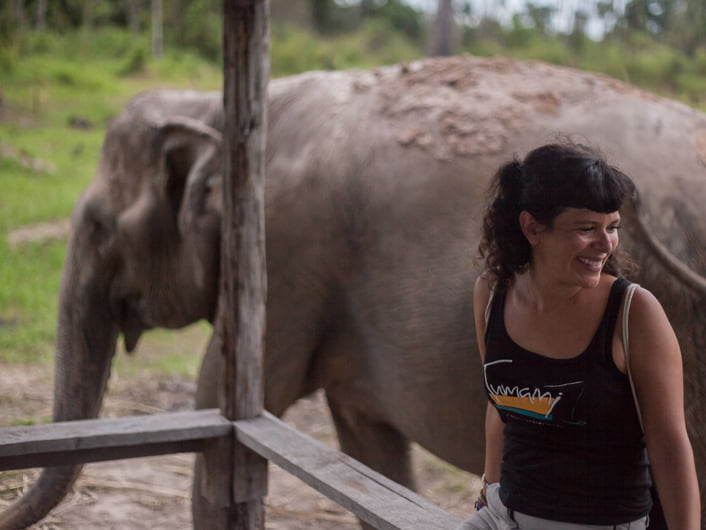Fires in the Amazon, how have they affected Bolivia?
Fires have devastated 4.1 million hectares of land in Bolivia. This Tuesday, Evo Morales finally gave the news we were all waiting for: the fires in the Bolivian Amazon have finally been extinguished. "The stage of recovery of the fauna and flora of our Chiquitania is beginning. Together we managed to put out the fire and together we will begin the post-fire stage," he says. But what are the real consequences of such large-scale fires? We tell you in 5 key points 1. 4.1 million hectares devastated In August, 30,901 forest fires were recorded in
Oriol in Bolivia: "Before, I was always stressed. Now: no!
Oriol during his stay in Bolivia. Since he was a child, Oriol has always been passionate about nature. Now he has decided to do everything he can to help protect it. He is studying environmental biology in Barcelona. And last year, he collaborated as a volunteer in the one in Bolivia with which Tumaini collaborates. This was his experience! Why did you want to go on a trip with rescued wildlife? Since I was a child, my interest and love for nature has been growing. That's why I want to do everything I can to help conserve the nature of our planet.
5 activities with animals that you should NOT do on your travels
Monkey at the rescued wildlife centre in Bolivia. We confess: when we started travelling we didn't know it either. We saw people riding camels, or colourfully painted elephants in temples. Something told us that it wasn't right, but we didn't know the terrible reality that these practices hide! After more than 5 years organising solidarity trips, we tell you 5 activities with animals that you should say NO to on your trips. 1 Elephant shows According to World Animal Protection's 2017 report, out of the 2923 elephants used
Naiara in Bolivia: "I did amazing things, met wonderful people and felt inexplicable things. A great adventure".
In May, Naiara left her city, Lleida, to travel to Bolivia with Tumaini. Although she has a degree in early childhood education, she decided to go on a solidarity trip to a centre for the protection of rescued wildlife. And the experience has been worth it. Dealing with animals, feeling their affection, knowing that you are helping them, meeting people, travelling alone, getting to know yourself better".
Plucked from the jungle: the terrible business of animal trafficking in Bolivia
A rescued animal in central Bolivia.Did you know that thousands of animals in Bolivia are taken from the jungle as victims of illegal trafficking? What are they used for? How does it affect them? How can we help? We sum it up in this post! Juancho is a jaguar from Bolivia. He was bought by the Santa Cruz Zoo when he was a baby. When he grew up, they realised that he had hip problems so he was not suitable for public display. He was kept in a very small cage. One day, when they were doing
Respect! 10 tips to travel without harming animals
At the elephant rescue centre in Thailand, elephants are helped to live with dignity... I'll tell you a secret about animals - only if you tell the whole world! Travelling without harming them is possible. After organising hundreds of solidarity trips, from Tumaini we share with you some keys to travel the world without affecting our fellow planet companionsIs there a magic recipe to travel in a 100% responsible way with animals? No, but Responsible Tourism gives us some tips to cause them the least negative impact. The secret includes:
Life in the jungle with Octavio the monkey, Balu the bear and Marley the puma.
The spider monkeys are the "pampered animals" at the centre where Cristina workedWhen Cristina is asked what she did during her holidays, she "smiles from ear to ear". She spent three weeks at a wildlife protection centre in Bolivia, at the foot of the jungle. She looked after rescued spider monkeys that live "almost in their natural habitat, far from civilisation". She has learned so much about these primates that she feels that "instead of helping, it was me".
5 plans for the solidarity adventure of your life
If you still don't have a plan for this summer and you want to live a different experience this year, would you like to get to know a country like Kenya, India or Peru up close and collaborate with a local NGO? We propose 5 plans in 3 different continents for you to live an adventure of 10 this summer! A trip... what? A solidarity trip is a unique experience where a person not only gets to know the tourist attractions of a country, but also projects that work to improve their immediate reality. Travellers dedicate a few hours to the
Sandra's experience in Bolivia: "Every day was different, exciting and special".
Sandra collaborated last summer in one of the centres in Bolivia that works with rescued wildlife. These centres try to give a better life to animals that have suffered mistreatment, that have been in illegal trafficking and that, in many cases, this treatment has meant that they can no longer live in freedom. It is one of the most special projects we collaborate with and we always like to hear about experiences like Sandra's: "Every morning when we got up we had two tasks, one that varied daily and it was
Bárbara's experience in Bolivia: "I would repeat a thousand times".
"It has been an experience I will never forget, a trip and a work that I would repeat a thousand times if I had the chance. First of all, I have to say that I feel absolutely enriched as a person and also on a professional level, given that I have had the opportunity to meet two great veterinarians (Aleja and Marta) from whom I have learned in every way, as they have been two great friends, mothers, teachers, confidantes







